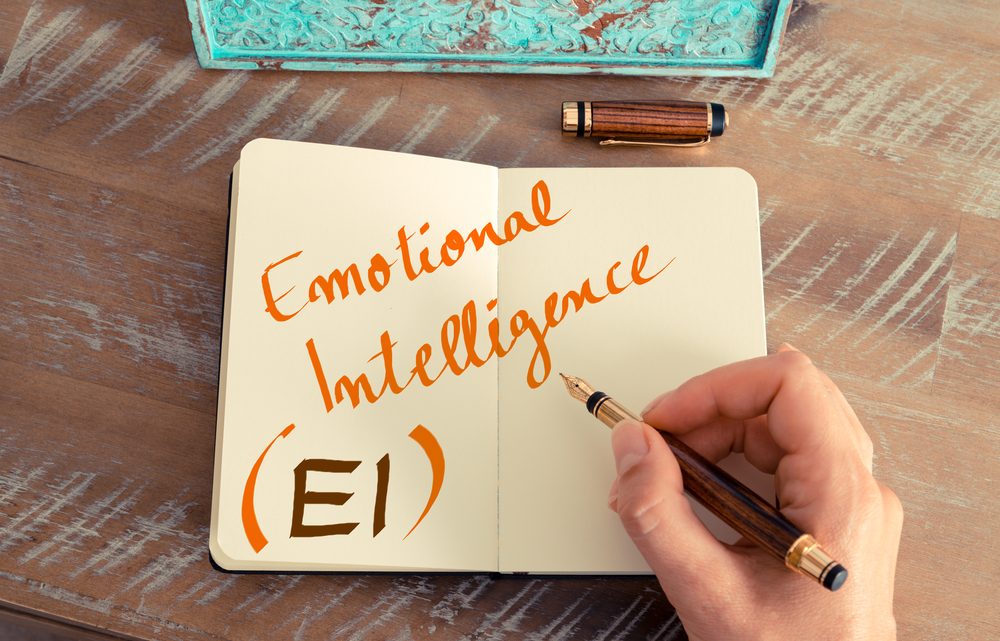Emotional Intelligence is something that impacts all of our relationships, not only those with employees. How EI works with customers/clients will depend on how they actually perceive your communication style.
Sales people, from many companies globally, have participated in Emotional Intelligence development with significant increases in sales, through their enhanced ability to:
- listen to and respond more effectively to client concerns
- amend individual sales behaviour to better meet the needs of the individual client/customer they are working with
- enhance collaboration with the client and better able to read the clients emotions which influences decisions they make on how to progress through a sale.
In addition, if you are a business owner, organisational CEO or Manager, and/or an entrepreneur, below are the top 5 ways you can benefit and grow your business through Emotional Intelligence development:
- Emotional Intelligence helps you be a better communicator – even if you communicate well already and have built your career on this skill, it is important to remember that 90% of communication is non-verbal – knowing your body physiology and how it impacts your own emotions and how it impacts the way you interact with others is a key area for development in all of us. You can “read” people better when you are aware of your own physiology based on how you are feeling, which leads to enhanced relationships and networking. When you build your Emotional Intelligence and get feedback from your customers, this influences even greater customer loyalty through your own influence on your customer cascading to their customers.
- Emotional intelligence helps build even better relationships with customers. When you are in business you have already gathered some information about your customers. You need to understand what really matters to people, and what they really want. These skills are acquired through practice, through effort, understanding what questions to ask, and how to respond to meet the needs of the individual and how to best influence them through building your own awareness of others.
- Building your Emotional Intelligence helps you de-stress – When challenges come up and you start to feel frustrated, angry or overwhelmed, EI kicks in to help you stay calm. You can look at the problem or situation, stay emotionally grounded and find a solution. High Emotional Intelligence helps you manage your emotions so that you are more likely to react constructively, even when a client or competitor is pushing your buttons (or someone who doesn’t think exactly like you!). The consequences of confrontation for individuals who are not comfortable in that space or cannot even get over a confrontation as quickly as others, has the potential to impact your business by a) your customers share stories and experiences of your business and their interactions by telling friends and family, which assist them to debrief, b) recommend your competitors and refer their friends and family elsewhere as a result of their experience with you or your team as a result of their discomfort. This may be a very real risk to your business.
- Emotional Intelligence builds skills in empathy – Decisions are made on the basis of how we feel about the facts we’ve uncovered. In sales, our goal is to demonstrate how our product or services fulfills our client’s needs’, so that they feel positive and confident about the solutions we offer them. Let them know their concerns are valid, and explain clearly how the solution you offer addresses those concerns.
- When you build and enhance your Emotional Intelligence you are even more motivated to succeed – When you get a handle on your Emotional Intelligence, you have an even better idea of what makes you happy about your work. If you are like the team at HR Culture, you feel a rush and a real sense of making a difference when your client says what a great job you’ve done or what genuine and thoughtful counsel you’ve provided. That sense of positive feedback is like a reward for your passion and your hours of dedication.
The best way to find out about how you can really improve your Emotional Intelligence or even how people experience you, is to ask for feedback. Through asking and gaining feedback from key stakeholders, you are able to focus in and identify how people you regularly deal with experience you. This feedback then provides you with a clear understanding of the gaps to work on and then allows you to build on them over time through proven strategies. Both individuals and organisations reap the benefits.
There are proven sales results that have been experienced by global organisations who have invested in Emotional Intelligence development for their sales people including the pharmaceutical giant Sanofi.
To demonstrate this ROI I share a quote from Dr Ben Palmer who is the founder of Genos International who undertakes the research that underpins the Genos Model of Emotionally Intelligent Leadership and Workplace Behaviour:
‘Often we find that a 10% improvement in emotional intelligence starts to produce a significant return on investment. For instance, at Sanofi we have shown that an 18% improvement in emotional intelligence in their sales team lead to a 13% increase in sales revenue, returning $6 for every $1 invested in the program.’
While the ROI for business is impressive, it is also especially rewarding to participants who make the time and effort to get the most out of the program. Feedback from the Sanofi program shows the program not only helped improve the sales performance of the reps and their managers, but it also helped them improve the quality of their relationships with each other.’
HR Culture has Emotional Intelligence enhancement programs commencing regularly. Please let us know if you would like more information on how we may be able to assist your organisation. Genos Emotional Intelligence development is game changing for business and life-changing for individuals.
Susan Judd | HR Culture | Principal Consultant
Ph: 02 6581 5426 M: 0400 019 700
E: susan@hrculture.com.au W: www.hrculture.com.au






